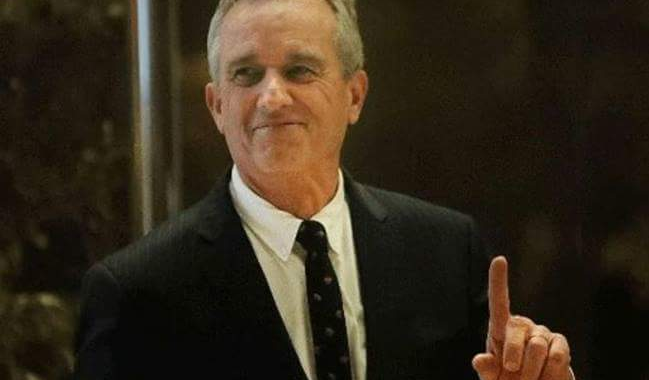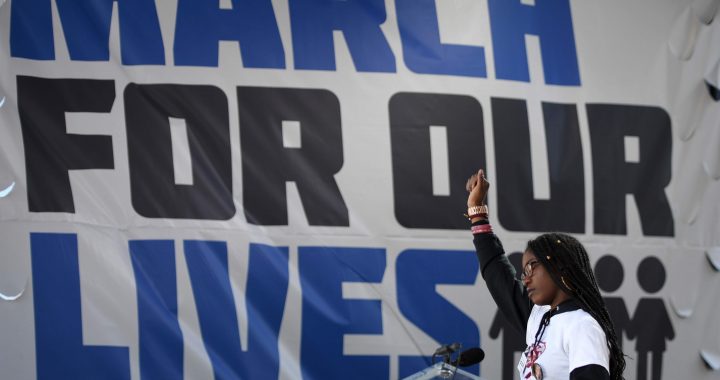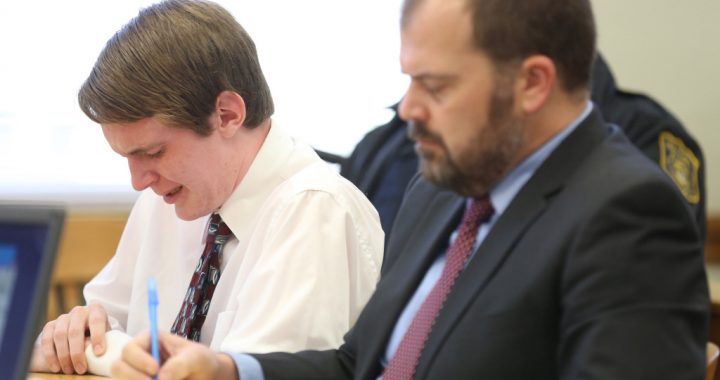Paragraph nine reads: “Wilson’s wife had left him the previous week, but he was about to start group therapy in Charlotte. He was getting over the physical pain caused by repeated roadside blasts and getting ready to switch from one brand of antidepressants to another.”
http://www.indystar.com/article/20090901/NEWS/909010369/
Day 3: ‘In their minds it’s never gonna go away. The war is still there.’
By Konrad Marshall
Posted: September 1, 2009
The body of Jacob Raymon Blaylock was buried in Houston National Cemetery in a field of patchwork sod, with a pond and fountain nearby.
Blaylock rests in plot S1 151, among his brethren — Armed Forces personnel who died the same day. In the grave to his right is Dennis Dildine, who had a career in the service followed by one as a church pianist, until diabetes claimed him in his sleep at 56. To his left is Louis Macko, a World War II veteran and ham radio operator whose body gave out at 87.
Born on June 13, 1981, Sgt. Jacob Blaylock was 26 years old when he died. Eight months after an explosion on a highway in Iraq killed two of his friends — Sgts. Brandon Wallace and Joshua Schmit — Blaylock took his own life with a pistol.
The young musician and artist was buried one week before Christmas 2007. His best friend, Damon Lyden, Indianapolis, was among the pallbearers — six parcels of muscle and bulk poured into black T-shirts and blue jeans, white orchids pinned to their chests.
The mourners did what they had to. They buried their boy. Then they went to a strip club — friends and family, young and old, men and women — and got drunk together.
“The funeral was a huge party,” Lyden said. “Why? Because Jackie partied, man. We weren’t driving, so why not raise a glass to him and put him in the ground?”
The following day, another member of the 1451st Transportation Company would be put in the ground.
The day after Jacob Blaylock took his own life, Sgt. Jeff Wilson was in Lincolnton, N.C., coming off an overnight double at the BI-LO grocery store.
Wilson’s wife had left him the previous week, but he was about to start group therapy in Charlotte. He was getting over the physical pain caused by repeated roadside blasts and getting ready to switch from one brand of antidepressants to another.
He spent the day reorganizing his home, painting his bathroom, shifting furniture. His mother, Elaine Hefner, helped. She didn’t know her son had secretly swallowed a consequential amount of antidepressants, not until he slipped into a violent seizure.
When Wilson came out of it, he was combative with paramedics. He had another seizure on the way to the hospital. He regained consciousness but was angry and had to be talked down by police. He had additional episodes throughout the night but eventually slept.
His family visited the next morning, having worried about him all night.
Wilson, 31, had joined the National Guard as a senior in high school, served three tours in Iraq and came home to coach Little League and volunteer for the Special Olympics. But relatives had seen how his time with the 1451st had changed him, how he, too, cried over Wallace and Schmit, how he, too, believed their deaths were somehow his fault.
Wilson was nearby when they died. Part of a convoy coming from the opposite direction, he tried to warn them they were headed for a firefight. He didn’t realize they were headed for a bomb buried in the roadway.
“He never talked about Iraq until the end,” Hefner said. “But it was building up on him.”
As family members scrubbed their hands near noon at the hospital, Wilson went into cardiac arrest. The trauma damaged his kidneys. He had dialysis three times that week and was put on a respirator.
“He was on life support until Sunday,” Hefner said. “He died at 4:45 that afternoon.”
Sgt. Jeff Wilson was buried in Roseland Baptist Church Cemetery in North Carolina, where his grandparents rest.
First Sgt. Roger Parker, his former commander, was there for the funeral and the wake. Parker, 41, was a platoon leader with the 1451st in Iraq and worked in the tactical operations center.
“He knew every one of his soldiers by name — if they were married, if they had kids,” said his father, Lawrence Parker, 70. “Every time he found out something about someone, he put it in his computer and kept it there.”
He felt proud of their successes and responsible for their failures. So when Wilson died, Parker, who also lived in North Carolina, came to pay his respects. He brought a bracelet that commemorated Wallace and Schmit, and put it on Wilson’s wrist before the casket was closed.
Parker concealed it well, but he was dealing with the same problems that Wilson and Blaylock had faced: physical pain, psychological troubles and problems in his relationship. Once a month, he made the hourlong drive from Tryon to Asheville to pick up a prescription of lithium and attend counseling sessions at the VA.
Then one summer evening in July 2008, Parker called his dad to talk about a new lawnmower. The father and son had spent the day at the beach together, but after a day in the sand and surf, Parker now sounded distant.
He didn’t tell his father he loved him, which he always did. And he didn’t tell him things had turned rotten, which they had. At 3:15 in the morning, the elder Parker heard the doorbell ringing and answered in his shorts.
“It was the police,” he said. “They got inside and said the words that changed my life: ‘Roger Parker hung himself.’ ”
Parker was the third member of the unit to take his own life since returning from Iraq.
For the 1451st Transportation Company, suicide had become the leading cause of death.
A ceremony was planned to bring together those suffering, for a time of peace and mourning. Members of the 1451st realized what was happening, and they intended to pause and reflect.
But in September 2008 — just two months after Parker hanged himself — that optimistic calm was shattered.
The Caldwell County Sheriff’s Office received a dropped 911 call from Fox Winkler Road in Lenoir, N.C. — the home of Larry Wayne Brucke Jr., who had changed his name to Skip Brinkley after he returned from Iraq.
Brucke, 32, was a police officer before joining the National Guard and serving with the 1451st in Iraq. He was now busy setting up a place for himself, his fiancee and her three kids on 37 idyllic acres.
When Deputy Adam Klutz arrived, he discovered a distressed fiancee who said Brucke had headed into the surrounding pasture and woods, possibly armed. The 25-year-old deputy began to search the area.
As backup arrived, Brucke shot Klutz in the head.
A second officer, Lt. Christopher Martin, arrived and was shot three times in the chest with the same .223-caliber rifle. Klutz died, and Martin lived — saved by his vest.
Brucke wasn’t especially close to Wallace or Schmit — or to Blaylock, Wilson and Parker, for that matter — but Iraq took a toll on the unit as a whole, said Lyden, no matter who your friends were.
“People changed over there,” he said. “I mean, Brucke killed a cop. Hell, Brucke was a cop.”
Brucke vanished, and warrants were issued for murder and attempted murder. A statewide search began, involving the FBI and U.S. marshals, and a $20,000 reward was offered for information leading to the capture of a 5-foot-8, blond-haired, green-eyed, goateed veteran, last seen in a gray Carhartt T-shirt and Farm Bureau hat. An FBI alert said the fugitive was a man who liked training mules and horses, was a proficient heavy machine operator, and was perhaps unstable and taking Zoloft.
One week later, as the funeral for the slain police officer began, other local law enforcement officers stood in a remote, wooded area a few hundred yards from Brucke’s residence.
Before them lay an M4 assault rifle with scope, two pistols and a cache of ammunition. There, also, was the body of Larry Wayne Brucke Jr.
He was seated in a ravine, with a self-inflicted gunshot wound to the head.
One month later, in October 2008, Rick Blaylock, Heidi Plumley and Damon Lyden gathered with 150 mourners in the high country of North Carolina, in the shadow of the Blue Ridge Mountains, in front of the National Guard Armory in the town of Boone, named for Daniel Boone.
The three of them — the father, the fiancee and the friend — were there to pay tribute to Blaylock, Wilson, Parker, Brucke, Wallace and Schmit.
They listened to the opening prayer, “The Star Spangled Banner” by loudspeaker and a live rendition of “God Bless the USA.” The ceremony was held in the newly minted memorial garden of the 1451st — the first thing you see when you approach the armory. The flower beds, filled with petals of red, white and blue, are bordered by four Bradford pear trees and six marble benches. A 5-ton boulder serves as a memorial to soldiers everywhere who have given their lives for freedom.
Blaylock, Plumley and Lyden stared at a statue and a walkway covered by two white sheets. Removed, they revealed a bronze battlefield cross, plaques for Wallace and Schmit, and commemorative bricks in honor of Blaylock, Wilson, Parker and Brucke.
People wept and hugged. Heads fell onto shoulders. Arms reached around backs. Hands were wrung in front of chests. The event did not involve the state or the wider public. The 1451st wanted it as personal as possible, for the soldiers and their families.
Rick Blaylock said he was touched “beyond words” by the event. Heidi Plumley, Jacob Blaylock’s fiancee, found it tough to stay strong. But for Lyden, the ceremony was merely a continuation of a sad fellowship, observed this time over too many drinks back at the hotel.
“We had our memorials in Iraq. We went and saw the families after we got back. We went to Houston and buried Jackie,” he said. “I don’t put much stock in a brick with a name on it. The guy’s still dead.”
But for others, it was an opportunity for the unit to close the matter. Almost one year later, no one else from the 1451st Transportation Company has died.
Lyden still lives in Indianapolis. He works for Artistic Skin Designs in Noblesville, and if you ask him what he thinks of the Army, he points to a tattoo on his right hand — his saluting hand — that reads “F.T.A.” He likes to remember Blaylock as his little buddy, a happy but fragile kid, everyone’s baby brother.
Plumley still lives in Houston. She used to wake up to the sound of the gunshot that ended Blaylock’s life. Now she dreams about the two of them sitting on a porch — him scuffing up the white nose of her Chuck Taylors, because Chucks weren’t cool unless the front was dirty.
Rick and Jacqueline Blaylock remain in Lowell. On a cold day in March, they sat stiffly on a loveseat in their attic, huddled on a John Deere fleece. Rick sparked a Newport. Jacqueline took a sip from a can of Busch Light.
She said she likes to play the happy songs her son wrote. She said she remembers the way he would embarrass her by putting on a British accent when they went shopping together. And she said she worries about other mothers, because of their sons.
“In their minds, it’s never gonna go away. The war is still there,” she said, tapping her head. “No doctor can read what they’re going through. They carry it home. All of it.”
Rick said he likes to hold the objects his son left behind: an old guitar, a new watch, the bandanna and goggles he wore on missions, the video camera he strapped to his M-16.
And he likes to look at two paintings Blaylock put on canvas when he was 17, a decade before he died. The first shows a calm ocean, a lighthouse, cliffs and a golden sunrise. It makes Rick smile.
But when he looks at the second one, he wonders whether his son somehow saw all the pain coming, for himself and for the men of the 1451st.
The painting hangs above a narrow carpeted staircase. It is all darkness — swells of water rising and falling, stormy skies above and a little rowboat with three figures inside: two gray phantoms and an infantryman in green.
“Jacob painted that for me, before he even went into the Army,” said Rick, shaking his head. “See? Two soldiers — ghosts — and one still alive, paddling by himself.”





Nothing to loose or gain:
Truly, I feel for the parents, no matter what the circumstances may be. But as for best friend? what of only a couple of years – off and on? – one who will never know the entire truth. Jacob had many sides (and understandably due to childhood circumstances – both happy and sad). As for fiancee? to a married man? – this is new but makes sense – the fiancee (correction: mistress but not limited to bisexual/lesbian) apparrently craves alot of attention. So for these 2 people, friend and fiancee (?)…..STOP….this is not about you two, its time for you to realize it and move on – if anything, it should be all about Jacob ONLY.
No one will ever know the real/entire truth of what may have really happened in the prior moments of Jacob’s death…of what was really said and done – but only the TWO that were there, who were BOTH VERY DRUNK (per family members).
Fact: there were other issues going on that night that Heidi is aware of.
Maybe Heidi’s mind can rest in peace but apparently its not happening alone…if this helps her to sleep at night (or day), then okay…but it really doesn’t matter.
Accept the truth:
Jacob Blaylock would have wanted his daughter and wife to be included in all ceremonies…in his heart, he just couldn’t let them go. There are just some things he wanted to do but couldn’t because of family conflict (too much interference per Jacob – he was SAD).
No matter what Jacob, you will always be in our hearts and missed terribly….we will not forget you as we will always love you unconditionally (as others should have).
Rest in peace sweetheart…
Your family and friends